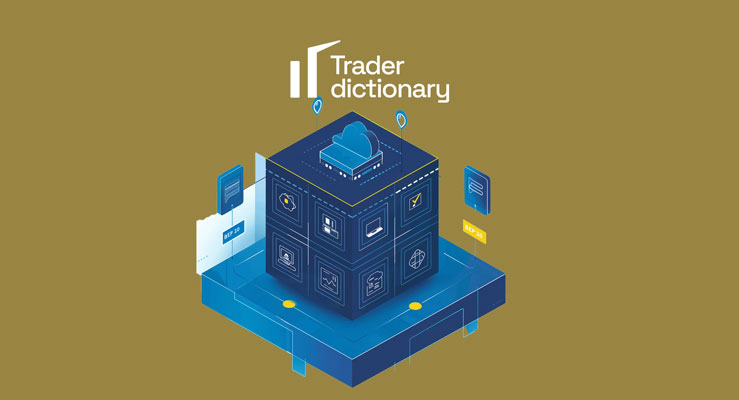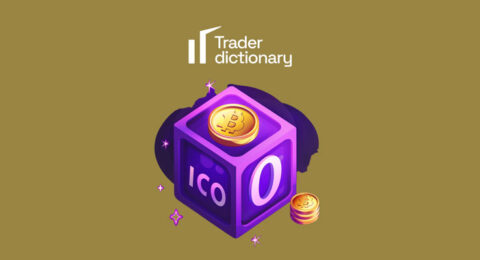In the vast and ever-evolving world of cryptocurrency, BEP20 has quickly become a familiar term, especially in the Binance Smart Chain user community. But do you really understand what BEP20 is and why it’s so important? This article will provide you with an overview of BEP20, from its origins, mechanisms of operation, to its significance and impact on the cryptocurrency market. Join us in exploring the interesting aspects of this new token standard!
What is BEP20?
In the world of cryptocurrency, BEP20 is increasingly becoming an essential concept for those participating in this market, especially for those interested in Binance Smart Chain (BSC). So, what exactly is BEP20, and what role does it play in the cryptocurrency ecosystem?
Definition of BEP20: BEP20 is a token standard designed for Binance Smart Chain. It is similar to Ethereum’s ERC20 standard but optimized to operate on BSC.
Compatibility and Diversity: BEP20 tokens are compatible with various wallets and services in the cryptocurrency market. They offer diversity in developing new projects and tokens.
Fast Transactions and Low Fees: One of the outstanding advantages of BEP20 is its ability to conduct fast transactions with low fees, thanks to BSC’s efficient infrastructure.
Support for Project Development: BEP20 opens opportunities for developers to create new tokens and participate in the Binance Smart Chain ecosystem.
Safety and Security: BEP20 also focuses on ensuring safety and security for users, with advanced transaction control features.
Support from the Binance Community: BEP20 is strongly supported by the Binance community, facilitating growth and widespread acceptance.
BEP20 is not just a token standard but also an important part of the continuous development in the cryptocurrency world, opening new opportunities for both investors and developers. Understanding BEP20 will help you better seize opportunities in this market.
How has BEP20 developed?
The BEP20 standard, an indispensable part of the Binance Smart Chain (BSC) ecosystem, has undergone a significant development process. The evolution of BEP20 not only marks a step forward in blockchain technology but also opens up new opportunities in the cryptocurrency market.
Originating from Binance Chain: BEP20 originated from Binance Chain, Binance’s first blockchain platform, with the aim of creating a fast and efficient trading environment.
Development of Binance Smart Chain: The advent of Binance Smart Chain, a parallel blockchain to Binance Chain, has spurred the development of BEP20. BSC is designed to support smart contracts and is compatible with the Ethereum Virtual Machine (EVM).
Addressing Liquidity and Compatibility Issues: BEP20 was developed to address issues of liquidity and compatibility in trading. It allows for easier interaction between different types of tokens on BSC.
Support for New Projects: BEP20 opens the door for new projects, allowing them to develop and deploy their tokens on a robust platform.
Meeting Market Demands: The development of BEP20 reflects the market’s need for a flexible, efficient, and user-friendly token standard.
Continuous Innovation and Upgrades: BEP20 is continuously upgraded and improved to meet the increasingly sophisticated technical requirements of the cryptocurrency market.
The development of BEP20 demonstrates the dynamism and adaptability of Binance in meeting market needs and technological innovation. BEP20 is not just a token standard but also an essential part of the advancement of the blockchain industry.
Advantages and disadvantages of BEP-20
Advantages
The BEP20 standard of Binance Smart Chain has brought many benefits and notable advantages, making it one of the preferred token standards in the cryptocurrency world. Below are the main advantages of BEP20:
EVM Compatibility (Ethereum Virtual Machine): BEP20 is designed to be compatible with EVM, allowing easy migration of projects from Ethereum to Binance Smart Chain, expanding opportunities for developers.
Fast Transactions and Low Cost: One of the significant benefits of BEP20 is its fast transaction speed and low transaction cost, especially compared to Ethereum’s ERC20 standard.
Ease of Token Creation: BEP20 provides a simple and easy process for creating and issuing new tokens, encouraging innovation and creativity.
High Liquidity: Tight integration with Binance DEX and other exchanges on Binance Smart Chain ensures high liquidity for BEP20 tokens.
Safety and Security: BEP20 is backed by the robust security system of Binance Smart Chain, enhancing safety for users and projects.
Support for a Wide Range of Projects: BEP20 is suitable for various types of projects, from DeFi to NFT and other blockchain applications.
Community and Development Support: The strong Binance community and development resources provide an excellent environment for developing projects based on BEP20.
BEP20 not only opens new doors for blockchain developers but also offers an optimized solution in terms of cost and performance for users. It is an important step forward in accessing and developing cryptocurrency projects.
Disadvantages
Although BEP20 brings many benefits and advantages to users and developers, it cannot be denied that it has certain limitations and disadvantages. Below are some drawbacks to consider:
Dependence on Binance Smart Chain: BEP20 primarily operates on Binance Smart Chain, and thus it depends on the stability and performance of BSC. Any issues with BSC can also affect BEP20 tokens.
Limited Diversification: Although BEP20 is compatible with EVM, its primary focus on BSC may limit diversification in terms of blockchain infrastructure for projects.
Security Risks: Although Binance Smart Chain has high security measures, no system is perfect. Security vulnerabilities may arise, affecting BEP20 tokens.
Limited Features and Innovation: While BEP20 is optimized, it may still be limited in terms of features and innovation compared to other token standards.
Dependence on Community and Support: The level of support and community involvement is also a critical factor. A decline in the Binance community can impact the value and popularity of BEP20.
Limited Widespread Acceptance: Although BEP20 is increasingly accepted, it still lags behind the popularity of other token standards like ERC20.
These drawbacks do not necessarily diminish the value of BEP20, but they are important factors to consider when deciding to use or invest in tokens based on this standard.
Standard parameters of BEP20 tokens
BEP20 tokens on Binance Smart Chain (BSC) set several important standard parameters that every developer needs to comply with to ensure compatibility and efficiency in the system. Below are the key standard parameters of BEP20 tokens:
Compatibility with ERC20: BEP20 is designed to be compatible with ERC20, Ethereum’s popular token standard, making it easy to transfer and interact between the two blockchain systems.
TotalSupply: This function determines the total supply of the token. This parameter helps define the maximum number of tokens that can be issued.
BalanceOf: This function returns the token balance of a specific address, allowing for tracking and control of the amount of tokens each user holds.
Transfer: Allows the transfer of tokens from one address to another, forming the basic foundation for all token transactions.
Approve and TransferFrom: These functions allow the token to be used in other smart contracts, expanding the possibilities for interaction and integration.
Allowance: This function controls how much token one address is allowed to use from another, enhancing transaction security and control.
Events: BEP20 defines events such as Transfer and Approval, making it easy to track transactions and interactions on the blockchain.
These parameters form a solid foundation for the development and operation of BEP20 tokens, ensuring standardization, transparency, and efficiency in transaction and interaction processes on Binance Smart Chain.
How to issue BEP20 tokens
Issuing BEP20 tokens on Binance Smart Chain is a technical process that requires basic understanding of blockchain programming and smart contracts. Below are the main steps to issue a BEP20 token:
Understanding Binance Smart Chain: First, you need to have a basic understanding of Binance Smart Chain – a blockchain compatible with Ethereum Virtual Machine (EVM), where BEP20 is supported.
Developing a Smart Contract: Develop a smart contract for the BEP20 token using Solidity, the programming language for writing smart contracts on the EVM environment.
Complying with BEP20 Standard: Ensure your smart contract complies with the technical specifications of the BEP20 standard, including functions like Transfer, BalanceOf, Approve, and related events.
Testing the Smart Contract: Before deployment, it’s important to test the smart contract on BSC’s testnet to ensure it functions correctly and securely.
Deploying the Smart Contract: After successful testing, deploy the smart contract on Binance Smart Chain’s mainnet. This requires a certain amount of BNB to pay for gas fees.
Verification and Publication: Verify the source code of the smart contract on BscScan to increase transparency and ease of tracking.
Interacting with the Community and Exchanges: After issuance, engage with the community and exchanges to enhance recognition and liquidity of your token.
The process of issuing a BEP20 token requires careful attention to detail. Strict adherence to regulations and thorough preparation will ensure the success of the token in the cryptocurrency market.
Differences between BEP-20 and BEP-2
When it comes to token standards within the Binance ecosystem, BEP-20 and BEP-2 are often mentioned the most. Although both are related to Binance, they have fundamental differences that are important to note.
Blockchain Platform: BEP-2 is the token standard on Binance Chain, Binance’s first blockchain, specifically designed for fast and secure transactions. Meanwhile, BEP-20 was developed on Binance Smart Chain (BSC), a parallel blockchain supporting smart contracts and compatible with Ethereum.
Support for Smart Contracts: BEP-20 is compatible with smart contracts and EVM, allowing the creation and deployment of decentralized applications (DApps). In contrast, BEP-2 does not support smart contracts.
Purpose of Use: BEP-2 is commonly used for token transactions on Binance DEX, Binance’s decentralized exchange. BEP-20 is more widely used in various projects on BSC, including DeFi, NFT, and other applications.
Compatibility: BEP-20 is compatible with Ethereum’s ERC-20 standard, making it easier to transfer and interact between BSC and Ethereum. BEP-2 lacks this feature.
Liquidity and Trading: BEP-20 generally has higher liquidity due to strong support from the BSC community and integration with major exchanges. BEP-2 is primarily traded on Binance DEX.
Transaction Fees and Speed: BEP-2 has the advantage of fast transaction speeds and low fees, while BEP-20 offers more features but may require higher gas fees in some cases.
Understanding the differences between BEP-2 and BEP-20 helps users and developers make the right choice for their needs and goals, from token trading to blockchain application development.
Examples of BEP20 tokens
BEP20 tokens, the standard of Binance Smart Chain, have been widely used in various projects and applications, from DeFi to NFT and blockchain applications. Below are some notable examples of BEP20 tokens:
PancakeSwap (CAKE): CAKE is the native token of PancakeSwap, one of the leading DeFi platforms on BSC. The token is used for governance, staking, and transaction fee payment.
Binance Coin (BNB): Originally issued on Binance Chain with the BEP-2 standard, BNB has also been created as a BEP20 token on BSC, where it is used for transaction fee payment and in smart contracts.
BakeryToken (BAKE): BAKE is the token of BakerySwap, a DEX and NFT platform on BSC. It is used for activities like staking and participating in NFT events.
SafeMoon: SafeMoon is a BEP20 token focused on preventing sell-offs and encouraging long-term holding through a reward mechanism for token holders.
BUSD (Binance USD): BUSD, a stablecoin issued by Binance, is pegged to the value of the USD and is also issued as a BEP20 token on BSC.
ChainLink (LINK): LINK, the token of ChainLink, a decentralized oracle service, also has a BEP20 version on BSC, expanding its interoperability within the Binance ecosystem.
These BEP20 tokens are just a few examples that demonstrate the diversity and applicability of this token standard in various areas of cryptocurrency and blockchain.a
Top 5 BEP20 wallets currently
Coinbase Wallet
Coinbase Wallet, a versatile cryptocurrency wallet developed by Coinbase, offers the ability to store and manage BEP20 standard tokens from Binance Smart Chain. Known for its user-friendly interface and ease of use, this wallet not only helps users store popular cryptocurrencies like Bitcoin and Ethereum but also widely supports various BEP20 tokens. Tightly integrated with Coinbase’s trading services, users can easily convert between different cryptocurrencies. Additionally, Coinbase Wallet ensures high security for digital assets with advanced encryption measures and two-factor authentication. The wallet also supports access to decentralized applications (DApps) and the NFT market, expanding the possibilities for interaction and participation in DeFi activities. This is an ideal tool for those interested in storing and managing digital assets on the Binance Smart Chain platform.
Trush Wallet
Trust Wallet is a versatile and secure cryptocurrency wallet, widely supporting BEP20 standard tokens from Binance Smart Chain (BSC). Known for its high-security features and user-friendly interface, Trust Wallet is an ideal choice for those looking to store, manage, and trade BEP20 tokens easily and securely.
Apart from supporting a range of BEP20 tokens, Trust Wallet also provides the capability to store various other cryptocurrencies, including Ethereum (ETH), Bitcoin (BTC), and ERC-20 tokens. Users can easily convert between these cryptocurrencies within the wallet.
One of Trust Wallet’s strengths is its ability to integrate with decentralized applications (DApps) on BSC, opening doors to the vibrant world of DeFi and NFTs. Additionally, the wallet has features such as two-factor authentication and security through a PIN or biometrics, enhancing user peace of mind when storing digital assets.
With Trust Wallet, users not only have a solution for cryptocurrency storage but also the convenience and flexibility to interact with the vast world of cryptocurrency and blockchain.
MetaMask
MetaMask, a popular and versatile cryptocurrency wallet, initially known as a top choice for storing and managing ERC-20 tokens on Ethereum. Recently, MetaMask has expanded its capabilities to support BEP20 tokens from Binance Smart Chain (BSC), bringing a powerful and flexible user experience.
With easy integration into web browsers and mobile applications, MetaMask provides an intuitive and user-friendly interface, making digital asset management more convenient than ever. Users can quickly add the BSC network and start trading BEP20 tokens, as well as enjoy decentralized applications (DApps) on BSC.
MetaMask is not just a safe storage wallet; it also serves as a bridge for users to access the bustling DeFi market and the growing world of NFTs. The wallet also implements advanced security measures such as private key encryption and two-factor authentication, ensuring the safety of users’ digital assets.
With strong support for BEP20, MetaMask has become an indispensable tool for anyone wanting to fully explore the potential of blockchain and cryptocurrency.
Math Wallet
Math Wallet is a multifunctional cryptocurrency wallet, strongly supporting the BEP20 standard tokens on Binance Smart Chain (BSC). Designed to meet the diverse needs of users, from beginners to professional investors, Math Wallet offers a comprehensive and secure storage solution.
With compatibility across various blockchains, Math Wallet is not limited to BEP20 but also supports other cryptocurrencies and tokens such as BTC, ETH, and ERC-20. This provides users with flexibility and convenience in managing a diverse array of digital assets.
The user interface of Math Wallet is designed to be intuitive and easy to use, making transactions quick and straightforward. The wallet also focuses heavily on security features, employing advanced encryption technologies to protect users’ digital assets.
Moreover, Math Wallet integrates the function to access decentralized applications (DApps) on BSC, expanding the ability to interact and participate in the worlds of DeFi and NFTs. With Math Wallet, users can easily enjoy a comprehensive and secure cryptocurrency experience.
Ledger Nano
Ledger Nano, one of the leading hardware wallets on the market, has now expanded its support capabilities to include BEP20 standard tokens from Binance Smart Chain (BSC). Combining physical security with digital utility, Ledger Nano offers a reliable and safe storage solution for various cryptocurrencies, including the latest tokens on BSC.
Ledger Nano is renowned for using secure chip technology to protect against both hardware and software attacks. When storing BEP20 tokens, users can rest assured about the safety of their digital assets, even when connected to computers or smartphones.
The wallet also provides an intuitive user interface, making the management and trading of BEP20 tokens easy and convenient. Furthermore, integration with leading cryptocurrency management applications like Ledger Live enhances the ability to access and manage digital assets effectively.
Ledger Nano is not only an ideal choice for long-term cryptocurrency storage but also a perfect solution for those who want to combine high-end security with the flexibility and utility of a versatile cryptocurrency wallet.
Conclusion
We hope that through this article, you have gained a broader and deeper understanding of BEP20 and how it operates. BEP20 not only opens the door to the development of new projects and applications on the blockchain but also creates opportunities for investors and users to access a variety of unique investment and trading opportunities. Continue to follow and discover more interesting knowledge about cryptocurrency with us!









